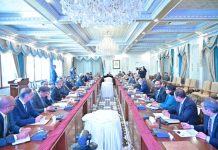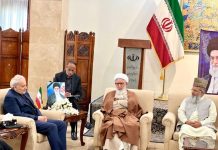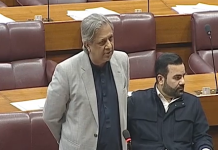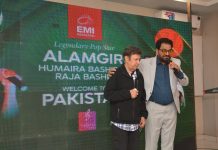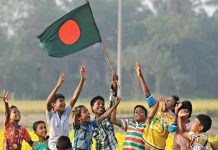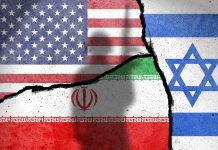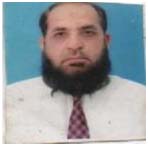
Dr. Syed Mehboob
Senior Research Editor
The News Lark, political and economic analyst
http//: www.thenewslark.com
Poetry is one of the best forms of creativity which enables human beings to express their feelings, sentiments, love, anger, and sorrow.
It is a form of literary art that uses aesthetic and often rhythmic qualities of language to evoke meanings in addition to, or place of literal or surface-level meanings. Any particular instance of poetry is called a poem and is written by a poet.
Pakistan and Bangladesh both are very rich in creativity and have produced several world-famous poets. Allama Muhammad Iqbal and Faiz Ahmed Faiz are two globally recognized poets of Pakistan similarly in Bangladesh Kazi Nazrul Islam has a great reputation. Kazi Nazrul Islam is the national poet of the brother country Bangladesh. He was born on 24th May 1899. Nazrul is regarded as one of the greatest poets in Bengali Basha. He produced excellent poetry, music, messages, novels, and stories with themes that included equality, justice, anti-imperialism, humanity, and rebellion against oppression. His collection of poetry is called, “Bidrohi” meaning “BAGHI “ in Urdu and Rebel in English. He earned the title of “Bidrohi Kobi” which means’ Rebel Poet”.
Nazrul Islam received his religious education and worked as a “ Mozin “ ( A person who calls Azan for Prayer) at a local Masjid. He learned about poetry, drama, and literature while working with the rural theatrical group Letor Dol, Leto being a folk song genure of West Bengal usually performed by the people from the Muslim community of the region. He joined the British Army in 1917 and was posted in Karachi. Nazrul Islam established himself as a journalist in Calcutta after the war ended. He criticized the British government and called for revolution through his poetic works, such as Bidrohi (Rebel) , Bhangar Gan “ ( The Song of Destruction) , as well as his publication Dhumketu ( the Comet). His national activism in the Indian Independence Movement led to his frequent imprisonment by the colonial British authorities. While in prison, Nazrul wrote the “Rajbondir Jobanbondi”, Deposition of a Political Prisoner). His writing greatly inspired Bengalis. His writing explored themes such as freedom, humanity, love, and revolution. He strictly rejected and opposed all forms of hatred, bigotry, and extremism, discrimination based oncaste, color, or gender. He wrote short stories, novels, Ghazals, and songs in the Bengali language and is also known for his extensive use of Arabic, Persian, and Urdu works.
Kazi Nazrul Islam was a prolific writer and poet and composed nearly four thousand songs known as “Nazrul Giti”. In 1942. At the age of forty-three, he begins to suffer from an unknown disease, losing his voice and memory. A medical team in Viana diagnosed the disease Pick’s disease, and rare incurable neurodegenerative disease. He moved to Dhaka in 1972. He died on 29 August 1976.
Nazrul Islam’s family was a highly respectable religious family and his father Kazi Faqeer Ahmed was the leader of the Muslim prayer which is called, “IMAM”. He studied at a Maktab and Madrassah, run by a Masjid. He studied the Holy Quran, the Hadith of Prophet Muhammad (Peace be upon him) Islamic Philosophy. After his father’s death, he took his father’s place as caretaker Imam. Later he joined folk theater joined a Leto (traveling theater group) run by his uncle Fazle Karim. He studied Bengali literature deeply. He wrote Chashar Shone(the drama of the peasant) Akbor Badshah and many others.
He also studied at Mathrun High School, studying under the headmaster and poet, Kumud Ranjan Mullick. He did not appear class ten exam and rather joined the British Indian Army at the age of eighteen. He wrote his first poem at the Karachi cantonment. He read extensively the work of Rabindranath Tagore and Sarat Chandra Chattopadhyay and also the Persian Poets Hafez, Omar Khayyam, and Rumi. He learned Persian poetry from the regiment’s Punjabi Maulvi.
Bidrohi (The Rebel)
I am the unutterable grief,
I am the trembling first touch of the virgin,
I am the throbbing tenderness of her first stolen kiss.
I am the fleeting glance of the veiled beloved,
I am her constant surreptitious gaze…
I am the burning volcano in the bosom of the earth,
I am the wild fire of the woods,
I am Hell’s mad terrific sea of wrath!
I ride on the wings of lightning with joy and profundity,
I scatter misery and fear all around,
I bring earthquakes to this world!
I am the rebel eternal,
I raise my head beyond this world,
High, ever erect and alone!
He Joined Bangiya Mussalman Sahitya Samiti ( Bengali Muslim Literary Society). He published his first novel Bandhan Hara( Freedom from Bondage) in 1920.
Nazrul reached the peak of his fame in 1922 with Bidhori, which remains his most famous work, winning the admiration of India’s literary society for his description of a published in the Bijli “Lightning”) magazine, the rebellious language and theme were well received, coinciding with the Non-Cooperation Movement the first mass nationalist campaign of Civil disobedience against the British government’s tyranny.
During his visit to Comilla in 1921, Nazrul met a young Bengali Hindu woman, Pramila Devi, with whom he fell in love, and they married on 25 April 1924. Brahmo Samaj criticized Pramila, a member of the Brahmo Samaj, for marrying a Muslim. Muslim religious leaders criticized Nazrul for his marriage to a Hindu woman. He also was criticized for his writings. Despite the controversy, Nazrul’s popularity and reputation as the “rebel poet” increased significantly.
Daridro (Poverty)
O poverty, thou hast made me great
Thou hast made me honoured like Christ
With his crown of thorns. Thou hast given me
Courage to reveal all. To thee I owe
My insolent, naked eyes and sharp tongue.
Thy curse has turned my violin into a sword…
O proud saint, thy terrible fire
Has rendered my heaven barren.
O my child, my darling one
I could not give thee even a drop of milk
No right have I to rejoice.
Poverty weeps within my doors forever
As my spouse and my child.
Who will play the flute?
His Islamic songs are popular during Ramadhan in Bangladesh.
Naari (Woman)
I don’t see any difference
Between a man and a woman
Whatever great or benevolent achievements
That is in this world
Half of that was by women,
The other half by man.
He wrote about human equality in his writings. He also explored the philosophy of the Quran and Muhammad (Peace be upon him). When his son died he turned towards religion and practiced Islamic rituals like Namaz and observed fast regularly. He wrote “ O Mon Romazaner Oi Rizar Sheshe”.
Kazi Nazrul Islam is one of the greatest poets of the subcontinent who believed in equality and condemned all kinds of bias and hatred. There is a need for Pakistani youth to read his poetry and Bangladeshi youth should read Allama Iqbal’s poetry which will enable them to understand each other and would pave the way for strengthening Pakistan and Bangladesh.

